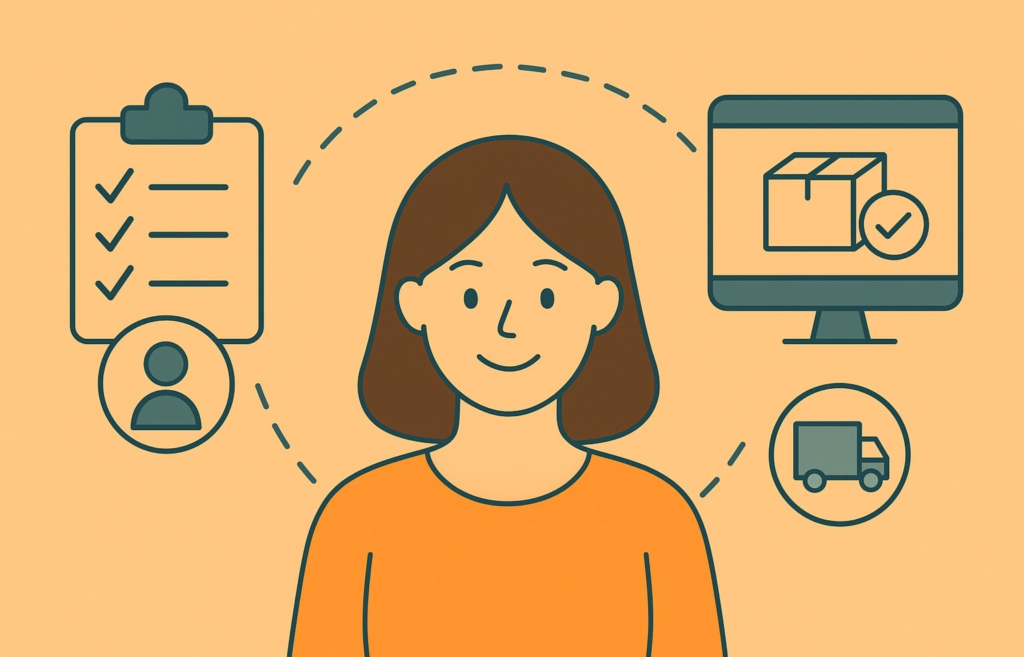Your ecommerce store is generating traffic, orders are coming in steadily, and your product pages look polished. Still, something feels off. Packages are delayed. Customer queries pile up. Your inventory levels don’t match reality. If this sounds familiar, your fulfillment strategy might be missing a crucial element: a skilled eCommerce virtual assistant
Fulfillment Isn’t Just Boxes and Barcodes
When most e-commerce brands think of fulfillment, they picture warehouse staff, shipping labels, and third-party logistics (3PL) providers. But there’s a layer beneath that—the digital coordination that holds everything together.
A skilled eCommerce virtual assistant handles exactly that. From syncing order data to managing returns, from updating inventory to chasing delayed shipments with suppliers, these professionals fill the gaps that automated systems and warehouse teams often overlook.
Real-Time Order Management = Happier Customers
Imagine this: An order fails to sync between your store and your fulfillment center. It sits unshipped for days before anyone notices. Your customer is frustrated. Your brand takes a hit.
An eCommerce virtual assistant monitors your order flow daily, flags issues immediately, and ensures every order is tracked from click to delivery. They can also update customers proactively, improving the post-purchase experience and turning one-time buyers into loyal fans.
Inventory Chaos? Tame It with Consistency
Inaccurate inventory is one of the fastest ways to tank your business. Overselling leads to order cancellations. Underselling leaves money on the table.
A virtual assistant specializing in e-commerce keeps your stock levels updated across all platforms—Shopify, Amazon, Etsy, eBay, or wherever you sell. They coordinate with suppliers, schedule reorders on time, and remove deadstock before it eats up your margins.
The result? Fewer customer complaints, faster restocks, and better cash flow visibility.
Handling Returns, Refunds, and the Tough Stuff
Returns are a natural part of e-commerce, but they can be a nightmare if left unmanaged. A capable virtual assistant can handle the paperwork, process refunds, communicate with customers, and update return records without slowing down your core operations.
Their intervention doesn’t just reduce admin work—it also keeps customers informed and satisfied during what is often a frustrating experience.
Keeping Suppliers in the Loop (So You Don’t Have To)
Your fulfillment strategy relies heavily on third parties—manufacturers, wholesalers, drop shipping partners, and shipping carriers. Coordinating with them takes time and follow-ups.
E-commerce virtual assistant services often include supplier communication. Whether it’s chasing delayed shipments, confirming purchase orders, or troubleshooting incorrect deliveries, your VA becomes the glue between your backend and your supply chain.
You get faster updates and fewer surprises—without being buried in emails.
Data-Driven Fulfillment Decisions
Skilled virtual assistants don’t just follow instructions. Many of them offer insights by tracking performance metrics: average delivery times, return rates, out-of-stock frequency, supplier reliability, and more.
This helps you fine-tune your fulfillment process over time, reduce cost leaks, and make smarter decisions based on data—something no warehouse can do for you.
Better Customer Support Starts Here
Shipping problems and fulfillment delays account for a major chunk of customer service tickets. By assigning these tasks to an e-commerce VA, you not only speed up resolution times but also maintain consistency across email, chat, and phone support.
And when a customer receives an accurate, timely update—especially during peak seasons—they’re far more likely to trust your brand again.
Scale Without Stretching Your Team
Many growing e-commerce businesses hesitate to scale because their operations feel fragile. A spike in orders quickly overwhelms their fulfillment process.
That’s where eCommerce virtual assistant services come in. They provide flexible, scalable support, so you can ramp up during peak seasons without burning out your core team. You don’t need to hire full-time staff or invest in expensive systems to stay agile.
It’s Time to Strengthen the Middle Layer.
Your warehouse ships the packages. Your platform processes the orders. But between those two endpoints is a digital middle layer where delays, errors, and blind spots often emerge.
That’s where a skilled e-commerce virtual assistant thrives.
If your fulfillment feels shaky, inconsistent, or manual-heavy, the solution may not be another software or fulfillment center. It may just be a human who knows how to hold the threads together efficiently, intelligently, and remotely.
FAQs:
1. Do I need to provide software access?
Yes, you will need to give your ecommerce virtual assistant access to software so they can use your store’s tools and platforms to manage orders, inventory, and communication more effectively.
2. How does hiring a remote assistant for business efficiency work?
Hiring a remote assistant can help your business run more smoothly by taking care of routine tasks and giving you more time to make strategic decisions. The remote assistant can work from anywhere, giving you more freedom.
3. What not to do as a virtual assistant?
Do not miss deadlines, give too many promises, ignore client instructions, be unresponsive, or share private information. Long-term trust as a virtual assistant depends on how professional you are, how reliable you are, and how well you can communicate.

